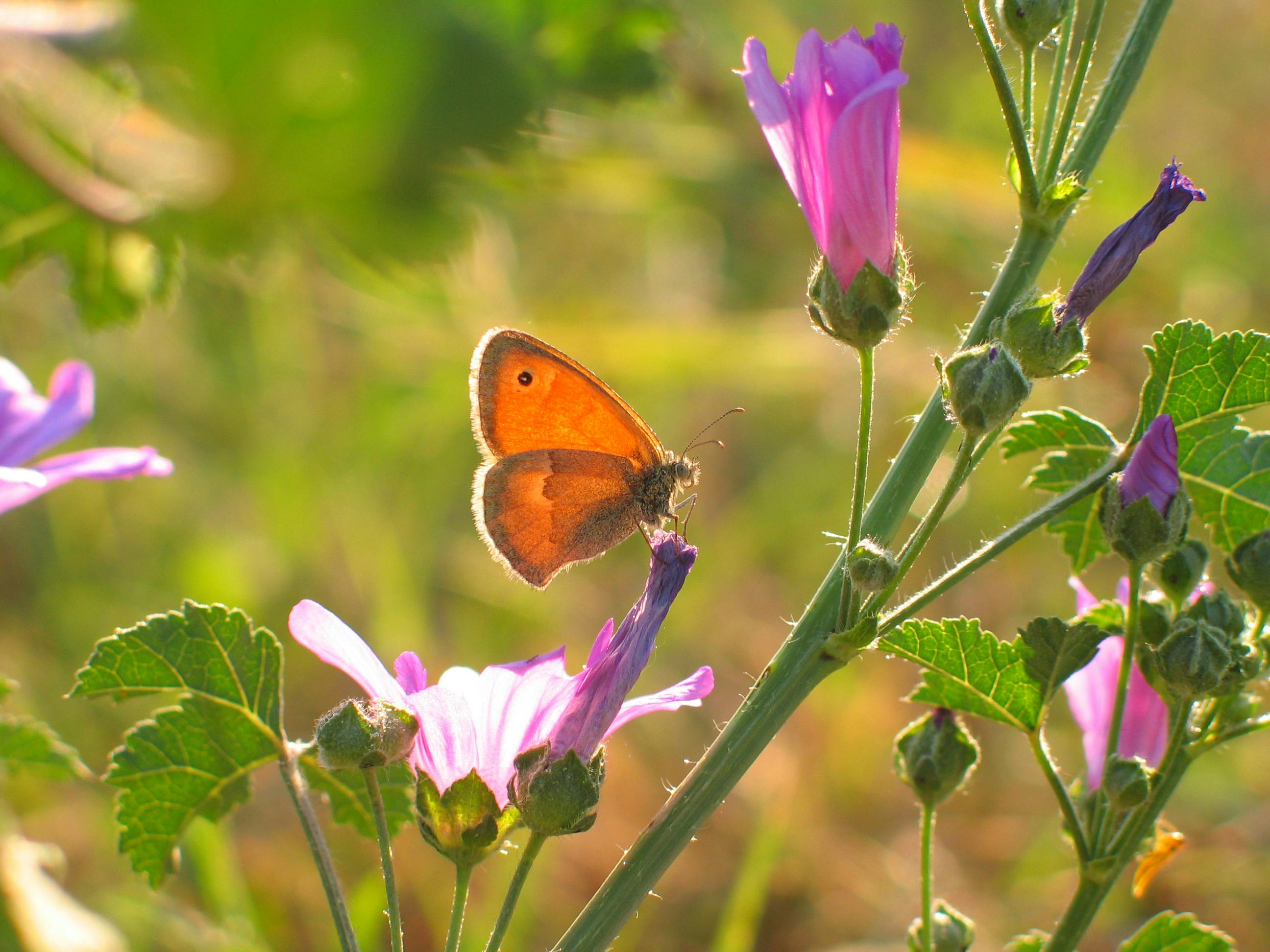Effective Ways to Kill Weeds Naturally in 2025 – Discover Proven Solutions!

Effective Ways to Kill Weeds Naturally in 2025
Introduction to Natural Weed Control
As the shift towards eco-friendly gardening practices continues to grow, many gardeners are seeking effective ways to eliminate unwanted plants without relying on harmful chemicals. In 2025, natural weed killers and organic weed control methods are more relevant than ever, providing a safe, sustainable approach to maintaining healthy gardens. Whether you're an experienced gardener or just starting out, there are numerous homemade weed solutions that can help you effectively manage weed growth while protecting your plants and the environment.
This article will explore various natural methods for weed removal, such as using vinegar weed removal, salt weed killer, and even boiling water for weeds. Additionally, we'll delve into the benefits of using corn gluten meal and Epsom salt, as well as essential oils for weeds. You'll also discover effective weed suppression methods like natural mulch, newspaper barriers, and landscape fabric for weeds. Join us as we uncover the best natural weed solutions for your gardening needs.
Understanding the Importance of Natural Weed Solutions
Weeds can detract from the beauty of your garden and compete with your plants for nutrients and sunlight. Implementing natural weed solutions not only combats these pests but also supports a healthier garden ecosystem. By utilizing organic weed prevention techniques, you can minimize chemical exposure in your environment, promote beneficial insects, and maintain soil health.
The advantages of natural weed control techniques lay in their sustainability and efficacy. Methods like baking soda for weeds and lemon juice weed solutions provide gardeners with safe, accessible alternatives that promote a flourishing ecosystem. Being informed about these proven solutions allows for a more holistic approach to organic gardening and improves garden health overall.
Homemade Weed Solutions: Proven Methods
Using Vinegar as a Natural Weed Killer
Vinegar weed removal is one of the most popular homemade solutions. It contains acetic acid, which can effectively kill weeds by dehydrating them. For best results, use a vinegar solution with at least 20% acetic acid, applying it on a sunny day for maximum potency. It's particularly effective against young, annual weeds.
To utilize this method, simply fill a spray bottle with the vinegar solution and spray it directly onto the leaves of the weeds. Ensure it does not come into contact with your desired plants, as it can harm them as well. This method not only provides effective weed control but also contributes to environmentally friendly gardening practices.
Additionally, consider combining vinegar with salt for even more robust results. Just mix one cup of salt with two cups of vinegar and spray it directly onto the weeds. Be cautious with this mixture, as it can have a long-lasting effect on your soil.
Harnessing the Power of Salt in Weed Control
Salt weed killer is another natural option that can be effective, but it must be used with caution. Sodium chloride can kill weeds by drawing moisture from them. However, excessive use can lead to soil salinity issues, affecting your garden's health in the long run.
To apply salt effectively, mix equal parts of salt and water to create a concentrated solution, then apply it directly to troublesome weeds. It is essential to avoid spraying your desirable plants since salt can also harm them. For targeted application, consider using a dropper system for precision.
Monitor the treated area closely and look for signs of damage to the soil. Over time, you may need to work in organic soil amendments to counteract any adverse effects of the salt.
Boiling Water: The Simple Yet Effective Approach
One of the simplest methods for removing weeds naturally is by using boiling water. This technique involves pouring boiling water directly onto the roots of the weeds, effectively scalding them. It is especially beneficial for weeds that have infested driveway cracks or garden pathways.
When applying boiling water, take care to avoid the surrounding plants. It’s a quick and easy way to control weed growth without the use of chemicals. Often, just a single application will suffice, but stubborn weeds may need repeated treatments.
You can enhance this method’s effectiveness by combining it with other techniques, such as applying natural mulch afterward to prevent new growth. This dual approach supports long-term weed suppression while enhancing soil health.
Utilizing Organic Materials for Weed Suppression
Corn Gluten Meal as a Preventative Measure
Corn gluten meal serves as an excellent organic weed prevention method. Its natural herbicides prevent weed seeds from germinating, making it an effective tool for maintaining a weed-free garden. Apply corn gluten meal as a pre-emergent control in early spring to hinder weed growth before it starts.
For best results, spread it evenly across the garden and lightly water it to activate its beneficial properties. This technique not only prevents weed growth but also contributes nutrients back into the soil, promoting healthy lawn care practices.
Make sure to avoid applying this product in areas where you want seeds to germinate, such as new vegetable or flower beds, as it will inhibit their growth as well. Understanding its limitations is key to successfully using corn gluten meal in your gardening strategy.
The Role of Epsom Salt in Weed Control
Epsom salt weed killer is another natural solution that can help in managing weed growth effectively. Composed primarily of magnesium sulfate, it not only aids in weed control but also promotes healthy growth in plants. Applying Epsom salt around your plants can deter certain types of weeds while providing essential nutrients for healthy plant development.
To utilize Epsom salt, mix it with equal parts of water and spray it directly onto the weeds. Monitor the application closely, as too much can lead to nutrient imbalances in your garden. This method is particularly useful in conjunction with other organic gardening tips for comprehensive weed management.
Combining Epsom salt with other organic weed suppression techniques teaches gardeners the importance of nutrient cycling and maintaining biodiversity in their gardens.
Creating Barriers and Cultivating Ground Covers
Natural Mulch: A Must-Have for Weed Prevention
Natural mulch is one of the best practices for organic weed suppression. By applying a layer of organic material such as straw, wood chips, or shredded leaves, you can create a barrier that prevents light from reaching weed seeds, thereby inhibiting their growth.
In addition to controlling weeds, organic mulch also maintains soil moisture, stabilizes soil temperature, and adds nutrients as it breaks down. Strategically apply this material around your plants, keeping it a few inches away from their stems to avoid rot.
Regularly replenishing your mulch layer is essential to maintain its effectiveness. Over time, this practice significantly improves your garden’s overall health while providing an aesthetically pleasing finish.
Newspaper Barriers for an Eco-Friendly Approach
Employing newspaper as a weed barrier is a viable eco-friendly strategy that many gardeners have found effective. Layers of wet newspaper can be placed directly above the soil, smothering the weeds and suppressing their growth. Be sure to use non-glossy newspapers to avoid introducing harmful chemicals into your soil.
After laying down the newspaper, cover it with a layer of mulch to hold it in place and improve its appearance. As the newspaper decomposes, it enriches your soil while continuing to prevent new weeds from sprouting.
This technique is particularly useful in vegetable gardens where maintaining healthy soil is crucial for successful crop yields. Regular checks are necessary to ensure that no new weeds are pushing through the paper layer.
Advanced Organic Weed Management Techniques
The Benefits of Landscape Fabric for Weed Control
Landscape fabric is a more permanent solution for weed management, capable of providing long-lasting results. This material allows water and nutrients to penetrate while effectively blocking sunlight to inhibit weed growth. Install the fabric in your garden layout where you want to maintain a clean and weed-free environment.
To achieve optimal results, cut slits in the fabric where you intend to plant, ensuring it fits snugly around the desired plants. This technique not only helps manage weeds effectively but also aids in improving soil health.
Regular inspections are important to ensure the fabric remains intact and effective over time. Pairing this method with mulch can further enhance its weed suppression abilities.
Utilizing Beneficial Insects for Natural Pest Control
Encouraging beneficial insects in your garden can also play a role in natural weed management. Certain insects prey on weeds or compete with them, helping to reduce their presence in your garden. By maintaining biodiversity in your garden — such as creating habitats for ladybugs and lacewings — you can promote a natural balance that deters weeds while supporting other beneficial species.
Planting native species that attract these helpful insects is a great strategy. In addition, creating a diverse ecosystem not only supports landscape health but also enhances your overall gardening experience.
Consistently observing natural pest populations can help you gauge the effectiveness of your methods and provide insights into future gardening strategies.
Conclusion and Practical Applications
Implementing Sustainable Gardening Methods
In conclusion, maintaining a weed-free garden in 2025 involves embracing various natural weed solutions. From vinegar weed removal and salt weed killer to employing natural mulch and landscape fabrics, there are numerous strategies to explore. By implementing organic weed control methods, gardeners can enhance their garden health while minimizing the ecological impacts of chemical herbicides.
Remember, successful weed management requires persistence and a combination of several techniques. Observing the outcomes of each method and adapting your approaches ensures that you’ll develop a thriving garden that remains free of invasive weeds.
Start integrating these natural practices into your gardening routine, and enjoy the many benefits sustainable gardening methods offer. Embracing these organic techniques not only contributes to the environment but also fosters a deeper connection with nature.

